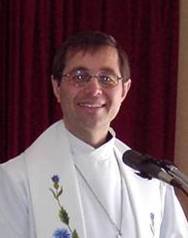p. 37.
While it is clear therefore that Luther did not deny that there was such a thing as natural theology and an objective revelation of God in nature, and while he did not consider the so-called "proofs" unworthy of notice, yet he laid little stress on this natural knowledge for several reasons.
First of all, Luther recognized, as do all those who understand this problem, that at best a rational approach to the knowledge of God can never go beyond a high degree of probability. But to Luther the commonly accepted rule, "Probability is the guide of life" would have been an abomination in the area of religious knowledge. Luther says that the very essence of unbelief is that men say, "I do not know. I am not sure."
So the proofs are not without value. There is inherent knowledge. The heathen, too, can know something about the law of God, the existence of God and the goodness of God. BUT he cannot be sure of anything. And probability just does not cut it in the area of religious knowledge. You don't know that you have a gracious God this way, that your life has any meaning or that God is willing to help you.
Faith is a God-created certainty and assurance. He says,
Properly speaking, faith is that which endures in extreme evils and holds fast to the Word of life and in this way conquers all the might of the devil, all terrors and all dangers, through which it enters with glory and confidence into eternal life.
Even the most ardent defenders of natural theology will generally agree that such a firm and settled assurance cannot be found in natural theology.
Luther saw that natural theology can maintain itself only with the greatest difficulty. Long before the antinomies of Kant were announced to the world, Luther had already laid down the rule:
No reason is so firm that it can not again be overthrown by reason. There is no counsel, no matter how wise, no thing, no edifice, no matter how magnificent or strong, which cannot again be destroyed by human counsel, wisdom, and strength. And this can be seen in all things. Only the Word of God remains to all eternity (Solum verbum Dei in aeternum manet).
I'm not really familiar with the antinomies of Kant, and I should be looking it up. Here they are. Interesting. One could learn more about that. Anyhow, we see the limits to such intellectual pursuits. We can be sure of nothing, even science. (Science makes truth claims, but it is always being tested and changed. What kind of truth is it?) Only the revealed word can have any certainty. -- Wow.
p. 38.
Precisely because he rejected "probability" as the enemy of faith, he considered the natural knowledge of God to be of limited value. "The right faith," he says, "is complete trust of the heart in Christ."
But the natural knowledge of God is by its very nature subject to doubt, and human reason can never come to a sure knowledge of God. but sure knowledge is what we must have, if we are to have peace of conscience. This, to Luther, was always basic to the whole problem.
It is just at this point that Luther parts company with neo-orthodoxy and its emphasis on the unreliability of the natural "proofs." Up to this point there is a certain similarity between Luther's thought and that of Kierkegaard, although, so far as I know, Luther never said that the proofs were "harmful" to faith, as Kierkegaard did. But the new fashion in theology has reduced all religious knowledge to the level of natural theology, at least so far as intellectual certainty is concerned. Emil Brunner, for example, says that when the church seeks for certainties she is doing something that always turns out to be disastrous. For that reason he opposes the concept of divinely inspired, and therefore "infallible," doctrine. He calls upon the church to recognize the "element of untruth which clings to every human formulation of divine truth" and the fact "that in our hands the divine revelation is always mingled with error and arrogance."
[However] For Luther the doctrines of faith were infallible and certain. He would have criticized the spirit of intellectual doubt and uncertainty that neo-orthodoxy has introduced into the church much more severely than he criticized the vacillations of Cicero and the heathen.
From The Foolishness of God by Siegbert Becker (c) 1982 Northwestern
Publishing House (www.nph.net). All rights reserved. Reprinted with permission.





